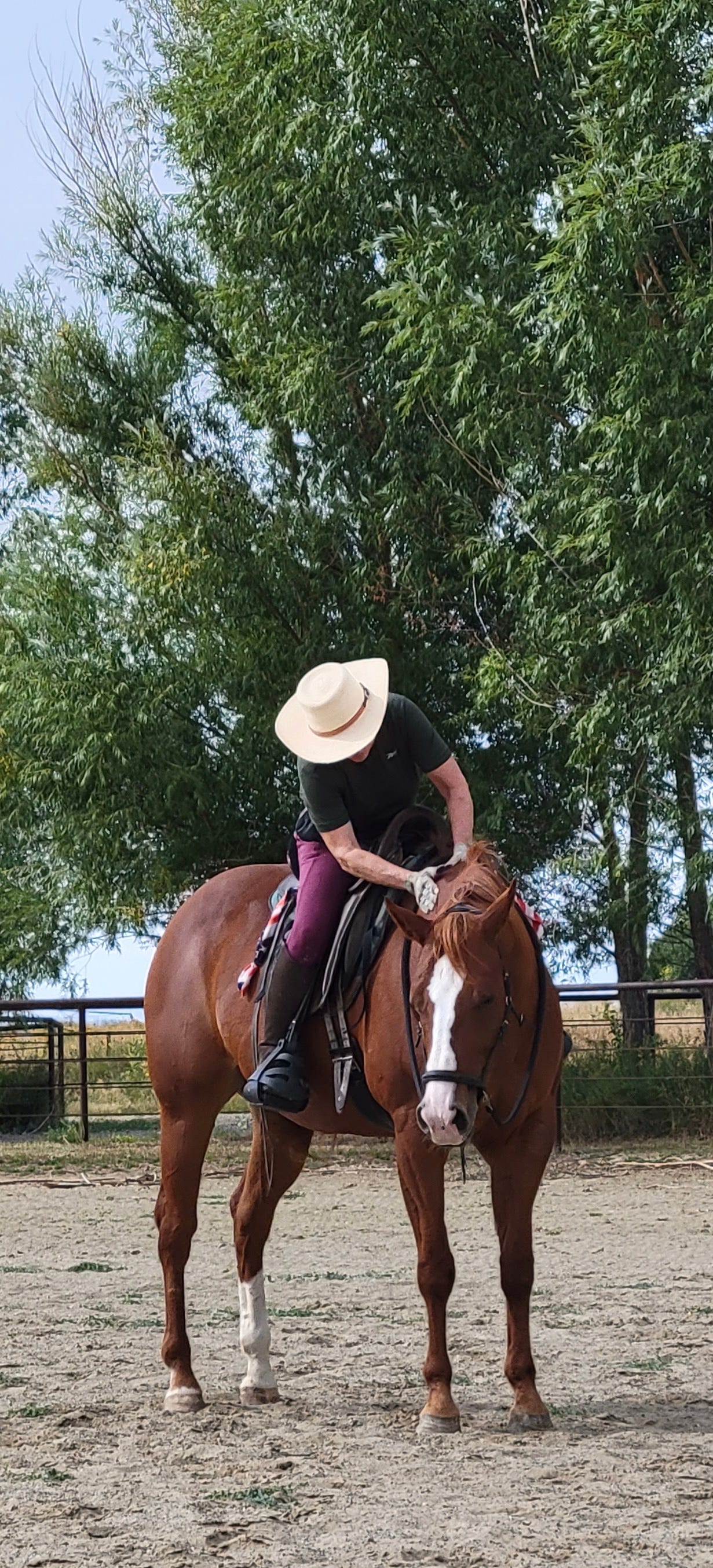
In my early journey as a Christian and a thinking, can-do person, the idea of “letting go” seemed so foreign to me. If God gave me this thinking brain, why would he simultaneously ask me to submit to His will? This is a complex subject. For me, letting go is about living in love, not fear. Love, according to 1 Corinthians 13 4-8 “…is patient and kind; love does not envy or boast; it is not arrogant or rude. It does not insist on its own way; it is not irritable or resentful; it does not rejoice at wrongdoing but rejoices with the truth.”
In past articles, you’ve read me discussing the importance of being insistent, persistent, and consistent in the training of horses. The insistence isn’t about my way or the highway, it’s about staying on the path that leads to letting go. That path must be one that moves us away from fear and towards love.
Training from fear leads to demoralized horses and horses who operate from learned helplessness. This is the opposite of relationship based horsemanship.
The idea of horses “letting go” to our intentions is what allows horses to feel safe, comfortable, valued, and respected when living with humans, presuming that we are putting the relationship first.
How could we not, then, take it upon ourselves to help horses find the state of letting go?
My definition of a horse letting go consists of:
Learning to act like a partner, not a prey animal
Developing a willingness to obey our direction
Becoming more emotionally, mentally, and physically resilient, so fear can fade away

If a horse behaves from fearful prey instincts, how can it possibly be a partner to humans who are the apex predator? This is the first job of horse training, convincing a horse that it is safe in our presence.
A horse also must learn to follow our direction without negative behaviors. They can have an opinion but must express those opinions respectfully.
Once horses can live outside of their prey instincts and learn to cooperate with human direction, positive experiences over time will build a horse’s physical, mental, and emotional hardiness.
As unique, intelligent individuals, they must have input in our relationship. It’s good for them, as they feel respected (see my article about dignity here), and lays the foundation for trust. It’s great for me, giving me the information and insights I need to strategize appropriately as we navigate the way to letting go.
Along the road to helping horses to let go, it’s on us to let go of:
Ego
Predatory behavior
Negative emotions

Our nature is to act as predators. Instead, we must learn to put ourselves in our horse’s hooves. We must learn to think more like a horse.
Bringing our ego to the table gets in the way of thinking like a horse. Humility is the path to understanding.
Behaving from negative emotions is the path of fear and holding on to our agenda, not love and letting go.
Our fears, both physical and emotional, must be dealt with before we can expect our horses to manage theirs.
Letting go is a process, not an endpoint. Every day presents horses and humans with the choice to hang on to fear or let it go.
My article on managing fear can help you overcome fear.
If you aren’t progressing with your horse, a reason for it may be thinking and acting from fear.
For more information about the amazing horses that have been and are being bred and raised on the HAAP farm, go to www.arabpinto.com
If you have questions for me about any of my posts, please feel free to contact me at isabellefarmer@gmail.com or visit our Facebook page at www.facebook.com/arabpintos


